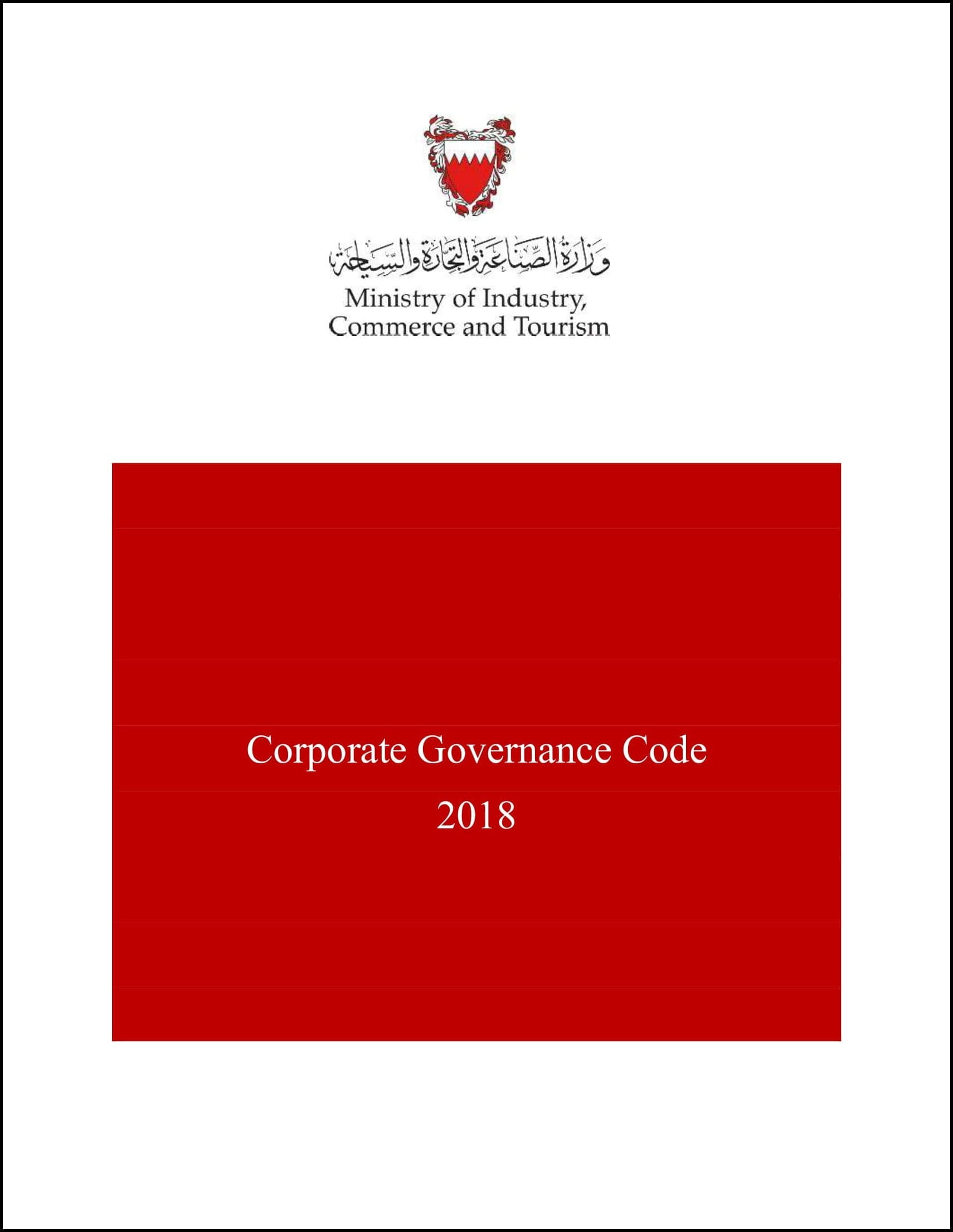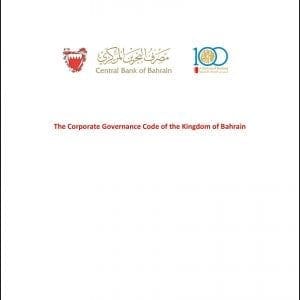The Ministry of Industry, Commerce and Tourism
The Ministry of Industry, Commerce and Tourism – Corporate Governance Code – 2018. Covering:
Chapter One – Definitions and General Provisions
Section One – Definitions
Section Two – General Provisions
First: Purpose of the Code
Second: Purpose of Governance
Third: Key Pillars of Governance
Fourth: The Companies which apply this Code
Fifth: Role of Shareholders
Sixth: Structure of the Code
Seventh: Comply or Explain Principle
Eighth: Ministry’s Requirements for Governance
Ninth: What’s New in this Version of the Code
Chapter Two – Corporate Governance Principles
Section One
Principle 1 – The Company shall be headed by an effective, qualified and expert Board
First: The BoD’s Composition, Responsibilities and Duties
Second: The Secretary
Third: The BoD’s Meetings, Decisions and Recommendations
Fourth: Directors’ Independence
Fifth: The Board’s Representation of all Shareholders
Sixth: Directors’ Accessibility to External Consulting Opinions
Seventh: Communications between Directors and Executive Management
Eighth: Committees of the Board
Ninth: Evaluation of the Board and its Committees
Section Two
Principle 2 – The Directors and Executive Management shall have full loyalty to the Company
First: Personal Accountability
Second: Dealing with Related Parties
Third: Avoidance of Conflicts of Interest
Fourth: Disclosure of Conflicts of Interest
Fifth: Criteria and Determinants of Professional Conduct and Ethical Values
Section Three
Principle 3 – The Board shall have rigorous controls for financial audit and reporting, internal control, and compliance with Law
First: Audit Committee
Second: Whistleblowing Program
Third: Chief Executive Officer’s, Chief Financial Officer’s or Financial Controllers Certification of the Financial Statements
Section Four
Principle 4 – The Company shall have effective procedures for appointment, training, and evaluation of the Directors
First: Nomination Committee
Second: BoD Nominations to Shareholders
Third: Induction and Training of Directors
Section Five
Principle 5 – The Company shall remunerate Directors and Senior Officers fairly and responsibly
First: Remuneration Committee
Second: Common Standards for all Remunerations
Third: Non-Executive Directors’ Remunerations
Fourth: Senior Officers’ Remunerations
Fifth: Performance-Based Incentive Regulations
Section Six
Principle 6 – The Board shall establish a clear and efficient management structure for the Company and define job titles, powers, roles and responsibilities
First: Establishment of Management Structure
Second: Job Titles, Authorities, and Duties
Section Seven
Principle 7 – The Company shall communicate with Shareholders, encourage their participation, and respect their rights
First: Shareholder Empowerment
Second: Conduct of Shareholder’s Meetings
Third: Direct Shareholders’ Communication
Fourth: Controlling Shareholders
Section Eight
Principle 8 – The Company shall disclose its Corporate Governance
Section Nine
Principle 9 – Companies which offer Islamic services shall adhere to the Principles of Islamic Shari’a
First: Establishment of Shari’a Supervisory Board
Second: Establishment of Corporate Governance Committee
Section Ten
Principle 10 – The Board shall ensure the integrity of the Financial Statements submitted to Shareholders through appointment of External Auditors
First: Selection of External Auditor
Second: External Auditor’s Obligations
Section Eleven
Principle 11 – The Company shall seek through social responsibility to exercise its role as a good citizen
First: Formulation of Social Responsibility Policy
Second: Disclosure of Social Responsibility
Third: An Annual Plan to Implement the Social Responsibility Philosophy
Appendices
Appendix (1) – Independence of the Board Member
Appendix (2) – Audit Committee
Appendix (3) – Nomination Committee
Appendix (4) – Remuneration Committee
Appendix (5) Corporate Governance Disclosure



Reviews
There are no reviews yet.